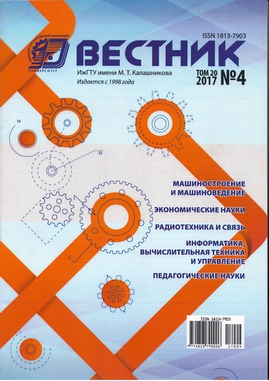Духовно-нравственное развитие личности в системе экологического воспитания школьников на примере гуманитарного направления
DOI:
https://doi.org/10.22213/2413-1172-2017-4-127-130Ключевые слова:
духовно нравственная личность, экологическое образование, экологическое воспитание, экологическое мировоззрение, интеграция уроковАннотация
Настоящая статья посвящена проблеме становления экологически культурной личности в учебно-воспитательном процессе, поскольку экологическое воспитание личности обучающихся является их мировоззренческой подготовкой. Показано, что важнейшим этапом формирования экологической культуры, экологического мировоззрения является школьное экологическое образование, проводимое через школьный компонент, интеграцию уроков по разным предметам, особенно гуманитарного цикла, и систему дополнительного образования. В процессе экологического образования интеграция научных знаний о взаимодействии общества с природой и соответствующих художественных образах направлена на преодоление разрыва между логической и образной формами познания и служит гуманизации образования. На первый план выдвигается формирование у учащихся экологической культуры - гуманистической, духовно-нравственной. Нормы нравственного отношения к природе, ставшие внутренней потребностью, могут сыграть большую роль в решении экологических проблем.Библиографические ссылки
Веселова Т. М. Формирование экологической культуры младших школьников на основе краеведческого материала // Начальная школа. 2003. № 2. С. 110-113.
Захлебный А. Н., Дзятковская, Е. Н. // Экологическое образование: до школы, в школе, вне школы. 2012. № 3-4 ; 2013. № 1.
Жолнерович П. Проблемы экологии в публицистических текстах Валентина Распутина и Владимира Короткевича // Language and Culture: Scientific Peer Reviewed Journal 2010. № 3. С. 130-132.
Колыванова Л. А., Носова Т. М. Инклюзивное биоэкологическое образование в аспекте модернизации профессиональной подготовки студентов колледжа // Модернизация естественно-научного образования: методика преподавания и практическое применение. 2014. С. 98-104.
Дзятковская Е. Н. Системный подход к формированию содержания экологического образования. М. : Образование и экология, 2012. 156 с.
Каминский П. П. Человек, природа, общество в публицистике В. Астафьева и В. Распутина // Вестник Томского государственного университета. Серия «Филология». - 2010. - № 2 (10). - С. 89-99.
Каминский П. П. «Литературу создает жизнь»: этическое и эстетическое в публицистике В. Астафьева и С. Залыгина // Вестник Томского государственного университета. Серия «Филология». - 2011. - № 11. - С. 175-179.


